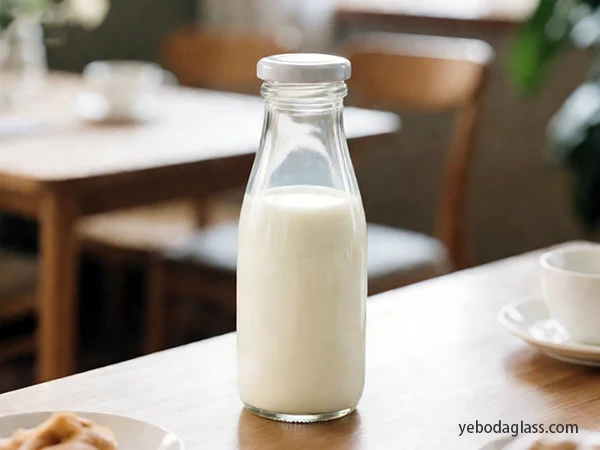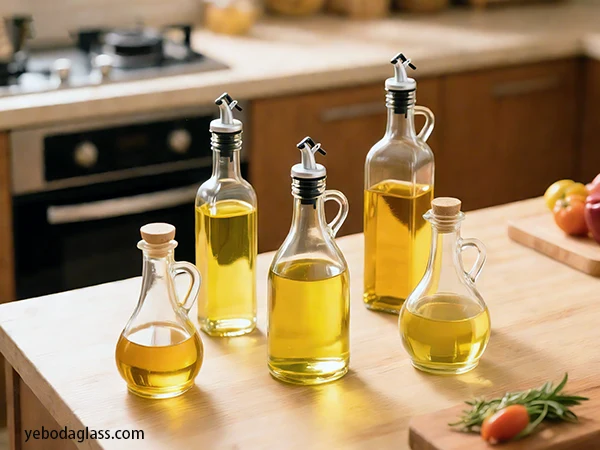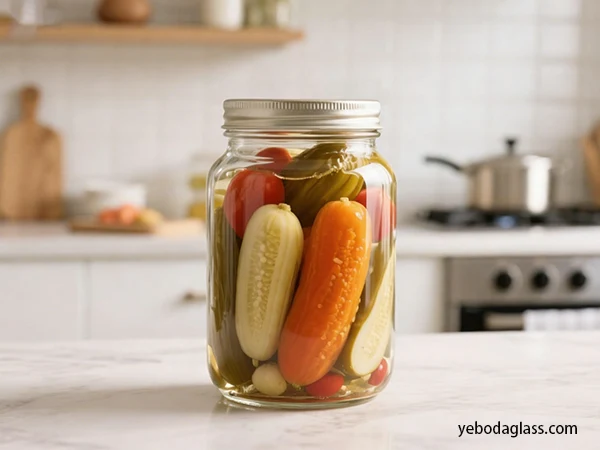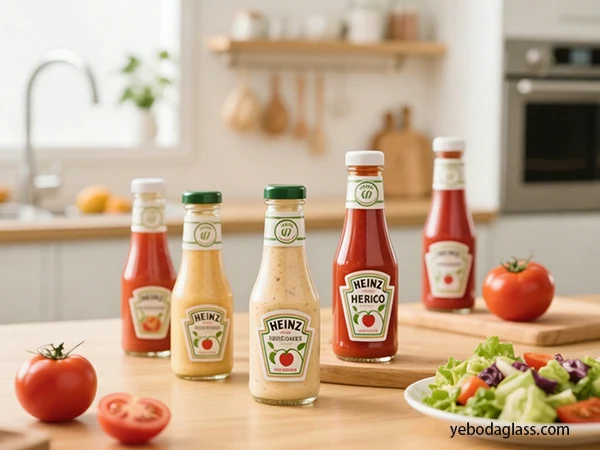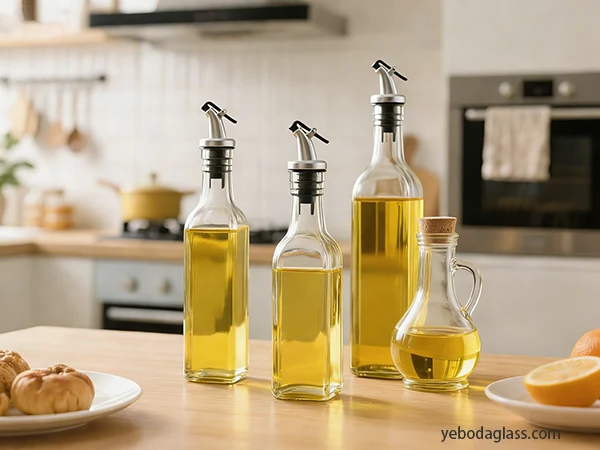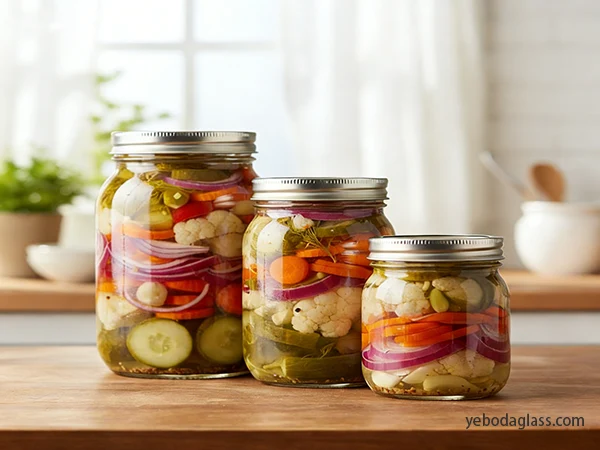導入
専門分野を選択する フリップトップボトル工場 単なるコストの問題にとどまらない戦略的意思決定です。今日の複雑に絡み合ったサプライチェーンにおいて、サプライヤーの安定性、品質、そして倫理観は、ブランドの評判、業務効率、市場力、そして収益に直接影響を及ぼします。規模の大小を問わず、因果関係の連鎖は、出荷の欠陥や遅延、知的財産権の侵害、さらには規制違反などを通じてビジネスに影響を及ぼし、企業に大きな損失をもたらします。逆に、 フリップトップボトル イェボダのスイングトップボトル工場のような信頼できる工場を選ぶことは、イノベーション、品質保証、費用対効果、そして問題や危機に対処できる強固なサプライチェーンなど、多くの面で大きなメリットとなります。イェボダは、精密成形、責任ある実践、そして包括的な品質管理システムを活用することで、これらのメリットを実証しています。本稿では、信頼できるガラス製フリップトップボトル工場またはスイングトップボトル工場を特定、評価、そして提携するための体系的なアプローチを提示します。このアプローチは、製品定義からサプライヤーとのコンタクトまで、企業が健全で低リスクかつ持続可能な意思決定を自ら行えるようにすることを目指し、体系的に進めていきます。

製品とプロジェクトの仕様の定義
調達を成功させる鍵は、製品を明確に定義することです。詳細が不明瞭なままだと、誤解や修正が生じ、結果として遅延につながります。
材料仕様
素材の選択は、製品の寿命、化学物質に対する安全性、そして見た目を左右します。一般的に、企業は以下のようにこれらの素材を使用しています。
- ペット: 透明、軽量、再利用可能、リサイクル可能といった PET の主な特徴により、飲料や化粧品に最適な素材となっています。
- HDPE: 製品の特性上、洗剤やシャンプーなどさまざまな用途に適しています。
- PP: この素材は非常に柔軟で耐熱性があるため、一体型のフリップトップクロージャーに使用できます。
- ガラス: 高級品や医薬品の場合、ガラスの美しさや品質が、そのような用途におけるガラスの不活性の主な理由です。
- バイオプラスチック: 環境に優しいですが、価格や性能が異なります。
すべてのフリップトップボトル工場は、自社製品が規制要件 (FDA、EU 10/2011) に準拠していることを保証するとともに、材料の完全なトレーサビリティを提供することが求められます。
容量と寸法
適切な測定を行うことで、製品が充填ラインに適合していることが保証されます。仕様には、容量、ネック仕上げ(例:24/410)、高さ、幅、ヒンジの設計が含まれます。ヒンジの強度とシール方法は、製品の機能性や性能に関わる非常に重要な要素です。
カスタマイズのニーズ
メーカーは、製品のブランドをユニークにするためにこの機能に慣れています。
- 金型設計: 特殊な形状とエンボス加工されたロゴ。
- カラーマッチング: パントンの正確な色合い、あるいは新しい色を取得します。
- 表面仕上げ: 光沢があったり、鈍かったり、少し曇っていたり、触ると柔らかかったりします。
- 装飾: シルクスクリーン、ホットスタンプ、シュリンクスリーブも使用できます。
- 機能的特徴: 主な機能としては、不正開封防止バンド、チャイルドロック、誘導シールなどがあります。
目標コストとTCO
単価だけでなく、単価を含む総所有コスト(TCO)を検討する方が賢明です。材料費、工具費、物流費、品質管理費、在庫管理費、リスク軽減費など、あらゆるコストを網羅する必要があります。
プロジェクトのタイムライン
金型製作、サンプル承認、量産、出荷といったマイルストーンを明確に定義することで、計画にボトルネックが生じないようにすることができます。
フリップトップボトル工場のコア要件の確立
製品仕様を超えて、コア要件により、製品が運用面に適合し、長期的な信頼性が確保されます。
生産量と拡張性
工場は現在だけでなく将来の需要にも対応できなければなりません。つまり、最小発注量、容量、リードタイムの柔軟性の間でバランスが取れている必要があります。
品質認証
フリップトップボトルを専門的に製造する工場は、ISO 9001(QMS)、ISO 14001(環境)、GMP、BRCGSの認証を取得する必要があります。工場内では、定期的に内部品質管理と検査を実施する必要があります。
地理的およびサプライチェーンのレジリエンス
地理は物流コストとリスクエクスポージャーに直接影響を与えます。オンショアリング、オフショアリング、そして地政学的評価はレジリエンスを向上させます。
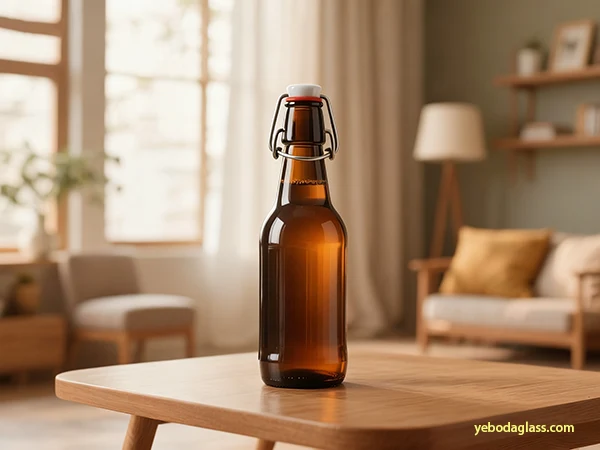
テクノロジーとイノベーション
社内にツール、自動化ライン、研究開発部門を備えた工場は、新製品開発の時間を短縮するだけでなく、革新的な製品の開発にもプラスの影響を与えることができます。 フリップトップボトル そして、一般的には、持続可能性についてです。
持続可能性の実践
ESG基準への完全準拠は、ブランドの評判を示す強力な指標となっています。大手ガラス製フリップトップボトル工場は、省エネ対策を実施し、使用済みプラスチック(PCR)素材を活用し、廃棄物を責任を持って処理しています。
金融の安定
安定性を確認するために、財務諸表、信用格付け、保険の適用範囲を確認してください。
戦略的調達と初期審査
技術的および運用上の基準が定義されると、フリップトップボトル工場に適したパートナーの検索が実行され、審査されます。
識別方法
効率的な調達チャネルは次のとおりです。
- 業界プラットフォーム(Alibaba、Global Sources)
- 包装見本市および展示会
- 専門家ネットワークとコンサルタント
- ターゲットを絞ったオンライン検索
- 地域の専門知識を持つ調達代理店
RFIおよびRFQプロセス
- 情報提供依頼: 機能、認証、容量などの一般的なデータを収集します。
- 見積依頼書: 詳細な価格、ツールコスト、リードタイム、支払い条件を尋ねます。
予備評価と候補者選定
一次審査通過後、以下の方法で異議申し立てが可能です。
- 企業規模、顧客ポートフォリオ、評判
- 認証の有効性と範囲
- 価格の見直しとTCOの調整
- コミュニケーションの明確さと応答性
- 顧客からの参照とフィードバック
最終候補として 3 ~ 5 社のフリップトップ ボトル サプライヤーを含むリストがデューデリジェンスに使用されます。
戦略的優位性:イェボダ・フリップトップボトル工場の事例
Yeboda のフリップトップボトル工場は、次のような理由から、他の工場の中でも初期審査で優勝する可能性がある。
- 高度な成形および自動化技術
- ラピッドプロトタイピングのための社内研究開発とツール
- バリューエンジニアリングによるコスト削減
- 厳格な多段階品質管理
- 環境に優しいリサイクルプログラム
- 積極的かつ誠実であることの美徳を備えた顧客サービス
このような戦略的利点を認識することで、コスト基準を超えた幅広いメリットを提供するパートナーを見つける機会が得られます。
包括的な工場評価とデューデリジェンス
詳細な工場監査と検証チェックを経て初めて最終候補者が選出されます。
サイト監査
現場検査には、生産ライン、倉庫組織、品質管理ラボ、ツール室、および安全および環境法のコンプライアンステストが含まれます。
品質システム評価
QMS、トレーサビリティシステム、CAPA手順に関する文書を確認します。サプライヤー管理のパフォーマンスと工場における品質問題の解決状況を調査します。
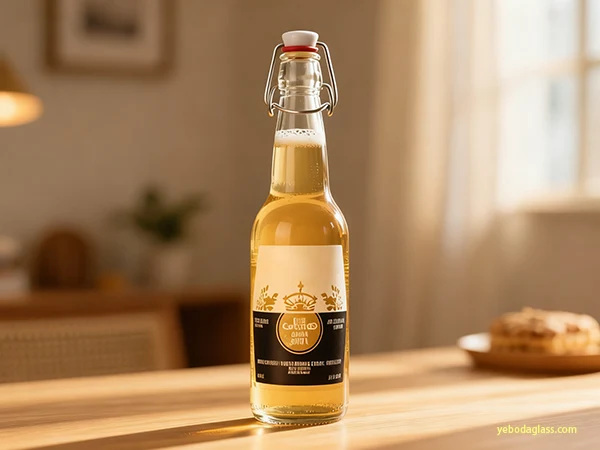
サンプルテスト
ヒンジの耐久性、シールの完全性、耐衝撃性、長期安定性についてプロトタイプをテストします。
財務レビュー
監査済みの財務諸表、信用報告書、所有権の構造を確認して、会社の安定性を確認します。
ESG監査
クリーンな労働慣行を実施し、大気への排出をなくし、その代わりに地域社会に対して責任を負います。
リスクと緊急時対応計画
サプライ チェーンの混乱、機器の故障、地政学的変化などの事象に対する準備レベルを評価します。
イノベーション能力
工場による研究開発および特許開発への投資は、長期的な価値の創造と共同開発の可能性を示しています。
イノベーション能力
工場による研究開発および特許開発への投資は、長期的な価値の創造と共同開発の可能性を示しています。
契約交渉とパートナーシップ管理
希望するフリップトップボトル工場を選択した後は、交渉による合意と関係構築に焦点が当てられます。
交渉の基本
締結された契約書には、製品の規格、品質測定、価格設定、その他の商業的側面、知的財産権、納品に関する義務を明記する必要があります。さらに、秘密保持契約(NDA)や遅延・欠陥に対する違約金条項は、両当事者の保護を確保するための有効な手段となります。
支払いとリスク配分
インコタームズ(FOB、CIF)、支払いマイルストーン、保証期間について理解を深めましょう。明確で誠実な条件設定は信頼関係を強化します。
通信プロトコル
スムーズな地理的調整のために、連絡先、更新頻度、報告方法を指定します。
長期的なコラボレーション戦略
長期にわたる関係構築の基本的な概念は、サプライヤーを戦略的パートナーに変えることにあります。
継続的改善フレームワーク
顧客満足度と監査プログラム (KPI、欠陥率、リードタイム) が実装されていれば、継続的な改善プロセスを主導することが可能になります。
共同開発とイノベーション
メーカーは、持続可能なパッケージングのためのガラス製フリップトップボトルの新製品設計とグリーン開発プロセスに参加する必要があります。
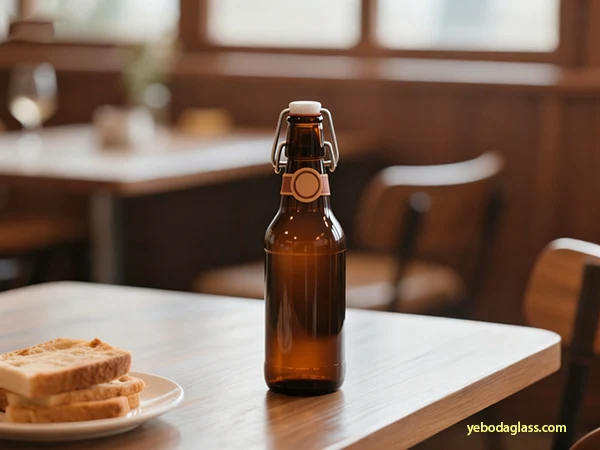
データの透明性と統合
ERP、MES、サプライチェーンの共有ダッシュボードなどの技術ツールは、透明性と変更への迅速な対応に使用できます。
共同持続可能性目標
排出削減、廃棄物のリサイクル、循環型経済プロジェクトなどのテーマで相互に協力します。
結論
ガラス製フリップトップボトル工場を選ぶ際には、戦略的先見性、技術的知識、そしてデューデリジェンスが不可欠です。仕様、認証、持続可能性、財務状況に至るまで、徹底した評価によって、事業の成功とブランドの評判が保証されます。優れたスイングトップボトル工場とガラス製フリップトップボトル工場は、製造だけでなく、パートナーシップ、イノベーション、そして長期的な価値創造も提供します。こうした厳格な戦略を実行することで、企業は持続可能なサプライチェーンを確保し、コスト削減を実現し、持続可能な競争優位性を獲得することができます。

